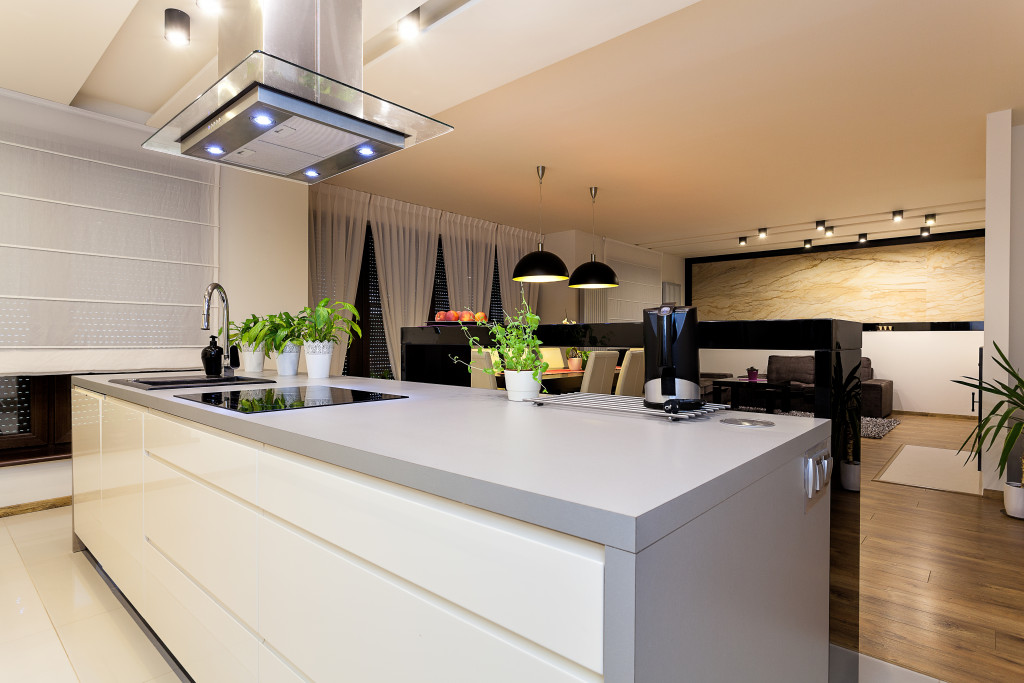Moving into a new apartment can be exciting, but it can also be a bit overwhelming. Whether you’re moving into your first place or your fifth, there are always things that need to be done before you can truly settle in and feel at home.
A lot of people think that moving into a new apartment is just about getting all your stuff into the new place and unpacking it. But there’s more to it than just that. It can be easy to get carried away by the number of bedrooms, kitchen space, and other features the new place offers and forget the important basics. Here are five things to check to ensure you have the best possible experience at your new place.
Security
The first thing to check before moving into your new apartment is security. Ensure that all exterior doors’ locks are in good working order and that any deadbolts are properly installed. It’s also essential to make sure that windows and sliding glass doors have locks and bars on them to prevent anyone from gaining entry while you’re away or asleep. Furthermore, if you opt for a gated community, ensure the lock system works and that all the gates close appropriately after each use. You should also ensure that the building’s emergency exits and fire safety equipment are properly working. If the building you’re moving to has a doorman or security guard, make sure you’re familiar with their hours of operation and procedures for allowing visitors.
Electric
Checking the electric situation in your apartment is another essential task prior to moving in. Make sure all outlets work correctly, as well as any light switches or dimmers (if applicable). Also, double-check any appliances—such as stoves, microwaves, refrigerators, etc.—to ensure they are connected correctly and can be used without issue when you move in. Additionally, if any wiring is exposed around the building—particularly near water pipes—make sure it is taken care of before signing anything or moving in.
You can also ask to check your building’s commercial energy performance certificate (EPC) to make sure the building is up to standards. This document should cover the efficiency of lights, heating, and water systems as well as other energy-saving measures. If possible, you should also take the time to check any smoke and carbon monoxide detectors around your apartment. This is essential for safety and peace of mind, as these alarms can help alert you to potential risks or hazardous conditions before they become a significant issue.
Potential Neighborhood Issues

When visiting apartments for rent, take some time to walk around the neighborhood during different times of the day so you can get a sense of who lives there and what sort of environment exists outside your own four walls. Look out for any signs of gang activity or other criminal behavior; ask neighbors about nearby schools; see if there is access to public transportation and consider what types of stores or restaurants are nearby. These are important to make sure it’s generally quiet enough for relaxation without being too isolated from potential sources of entertainment or socializing opportunities.
Additionally, you should consider other potential issues that may arise in the neighborhood. For example, are there any construction projects going on nearby? If so, this could bring additional traffic or noise, affecting your quality of life. Are there a lot of people walking around at night? If so, this could indicate potential safety concerns. Additionally, certain types of businesses near your apartment—such as bars or nightclubs—could also lead to increased noise levels late into the evening.
Possible Repairs Needed
When touring apartments prior to signing a lease agreement, take note of any repairs needed inside the unit itself, so they can be addressed before move-in day rolls around. Suppose issues like peeling wallpaper, broken fixtures/furniture pieces, stained carpets, and cracked tiles exist. In that case, these should be addressed immediately upon move-in (or preferably beforehand), as these can create safety hazards once moved into an occupied space. Additionally, check outside common areas such as walkways/stairways/elevators/laundry rooms, etc., to ensure they are clean and free from debris or other hazardous materials which could cause injury or health issues down the line.
In Summary
Moving into a new home is an exciting process. But it’s important to remember some basic checks before jumping right in — especially regarding security, electrical components, and potential neighborhood issues — all of which can help keep you safe in your new place! Be mindful and note any repairs needed before move-in so nothing gets overlooked. This way, you can relax knowing everything has been checked off before settling into your new place. With these tips under your belt, you’ll soon be up & running with minimal stress!
